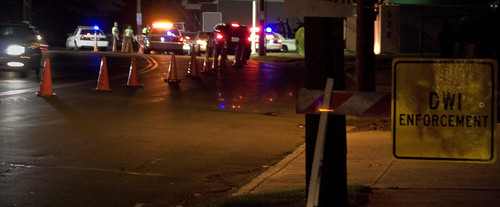In Marshfield, a couple with a 19-year-old son are defending themselves against charges that they allowed underage kids to consume alcoholic beverages at their home. Jeffrey and Janet Bessemer have been ordered to appear in court on misdemeanor charges of furnishing alcohol to minors and keeping a disorderly home, and violating the Massachusetts social host law. Fortunately, the case does not spring from a death or injury; police called on a noise complaint found a party at the Bessemers’ home. The Bessemers told the Quincy Patriot-Ledger that they had had their own party earlier that day, and they had neglected to put away all the leftover alcoholic beverages and shot glasses after it was over because they were tired.
Later that night, their 19-year-old son planned to have a few friends come over to meet his girlfriend, and the Bessemers said that a larger group of young adults showed up after 10 p.m. without their knowledge. Jeffrey Bessemer said that second group must have supplied the alcohol and that he wouldn’t have provided it. A neighbor called police complaining about loud music at 11:45 p.m., and when police arrived, they found both garage doors open with about 20 people hanging around there, and another 10 people inside the house. Only three of them were of legal age to drink alcohol, but police said most or all of them were holding beer containers or red plastic cups containing alcoholic beverages. There was a table in the garage holding plastic cups and a large amount of alcohol in open and closed containers, and in the kitchen police found liquor bottles and shot glasses. The Bessemers came downstairs shortly after the police arrived and told them they had been unaware that anyone was drinking. A Marshfield police officer expressed doubt about this.
Read article: Marshfield couple faces social host charges.
A few months ago, I discussed my concern that the social host law could be overzealously interpreted, and it appears that the Bessemers’ case may be an example of just that. As a Massachusetts OUI defense attorney, I would look at the situation with a more critical eye than the police officer may have used. There are a number of possible reasons why the Bessemers could have been unaware of their son’s party, even if it did generate a noise complaint. Noise complaints aren’t always reasonable, and noise can be blocked by well-insulated or large homes. The Bessemers may have trusted their son and didn’t realize that his judgment wasn’t as good as they thought.
The social host law specifies that “furnishing” alcohol means to provide it or allow its consumption on your property “knowingly and intentionally.” Proving this could be an uphill battle in this case. The Bessemers claim they didn’t do it knowingly or intentionally, if they did it at all, and there are alternative interpretations of the situation. The law absolutely should hold people responsible for their actions, but in a case like this, prosecutors and officers should investigate carefully before holding parents responsible for the actions of their adult children and those children’s friends. As a Massachusetts intoxicated driving defense attorney, I’m glad that the drinking at the Bessemers’ son’s party appears to have been harmless, and that no related drunk driving accidents were reported.
 Massachusetts DUI Lawyer Blog
Massachusetts DUI Lawyer Blog


 In my work as a
In my work as a  A Scituate teenager who crashed his car has been charged with driving under the influence, speeding, and other driving violations after attempting to escape from the police while they interviewed his passengers. The 17-year-old Scituate High School student’s name is being withheld because he is a minor. As a
A Scituate teenager who crashed his car has been charged with driving under the influence, speeding, and other driving violations after attempting to escape from the police while they interviewed his passengers. The 17-year-old Scituate High School student’s name is being withheld because he is a minor. As a 
 Because I’m a
Because I’m a